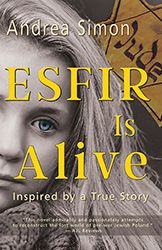Diary of the Fall is a novel of successive fractured father-son relationships over three generations in Porto Alegre, Brazil after the Holocaust. It begins with a brief account of the narrator’s grandfather’s diaries and arrival in Brazil, the narrator’s bar mitzvah lessons, and an insidious prank played on a classmate in junior high school.
At a pitiable “bar mitzvah” party for the only non-Jewish student in the narrator’s class, João, the motherless birthday boy is hoisted in the air by his classmates, who intentionally fail to catch him on the thirteenth toss. The memories that compose Diary of the Fall begin at the moment that João hits the ground and doesn’t get up, bruising a vertebra and condemned to two months in the hospital and several more in an orthopedic corset. It is this moment that defines the narrator’s adolescence, struggling with the inner consequences of his complicity — and a second, worse betrayal yet to come — through his intemperate adulthood.
Following João’s accident, the thirteen-year-old protagonist confesses the premeditation behind it to the school counselor, inadvertently incriminating his coconspirators without much consternation over this social seppuku, and befriends his victim. He decides to follow João out to a non-Jewish high school — a preference his father cannot accept as the son of a survivor of Auschwitz. The disagreement between father and son escalates to an outburst that forever changes their relationship and their respective understanding of what the Holocaust means for the generations to follow those who lived through it.
Would it make any difference if the things I’m describing are still true more than half a century after Auschwitz, when no one can bear to hear about it anymore, when even to me it seems old-fashioned to write about it, or are those things only of importance to me because of the implications they had for the lives around me? Because even though Auschwitz was considered to be the greatest tragedy of the twentieth century, and that includes the millions of people who have died in wars and massacres and under all kinds of regimes, a mere bureaucratic statistical account of the victims who disappeared all that time ago, even my grandfather, and even my father indirectly, not one of those victims was anywhere near as important to me as João was when I was fourteen.
Diary of the Fall is an arresting examination of the father-son relationship contending with a Holocaust legacy, staged within the insularity of Jewish Brazil. Through each fictional man’s written diary — the grandfather’s encyclopedia of the world as it should be; the father’s determined chronicles undertaken at the diagnosis of Alzheimer’s; the son’s scattered memories, cycling over and over as he faces the news that he, too, is about to have a child of his own — Michel Laub addresses “the nonviability of human experience at all times and in all places” with poised imbalance, heartbreaking honesty, and slow and sudden revelation.
Related content:
- Everything We Need to Know by Ruth Franklin
- Writing About the Holocaust by Margareta Ackerman
- Paperless Love: A Short Reading List by Sarah Wildman
Nat Bernstein is the former Manager of Digital Content & Media, JBC Network Coordinator, and Contributing Editor at the Jewish Book Council and a graduate of Hampshire College.




